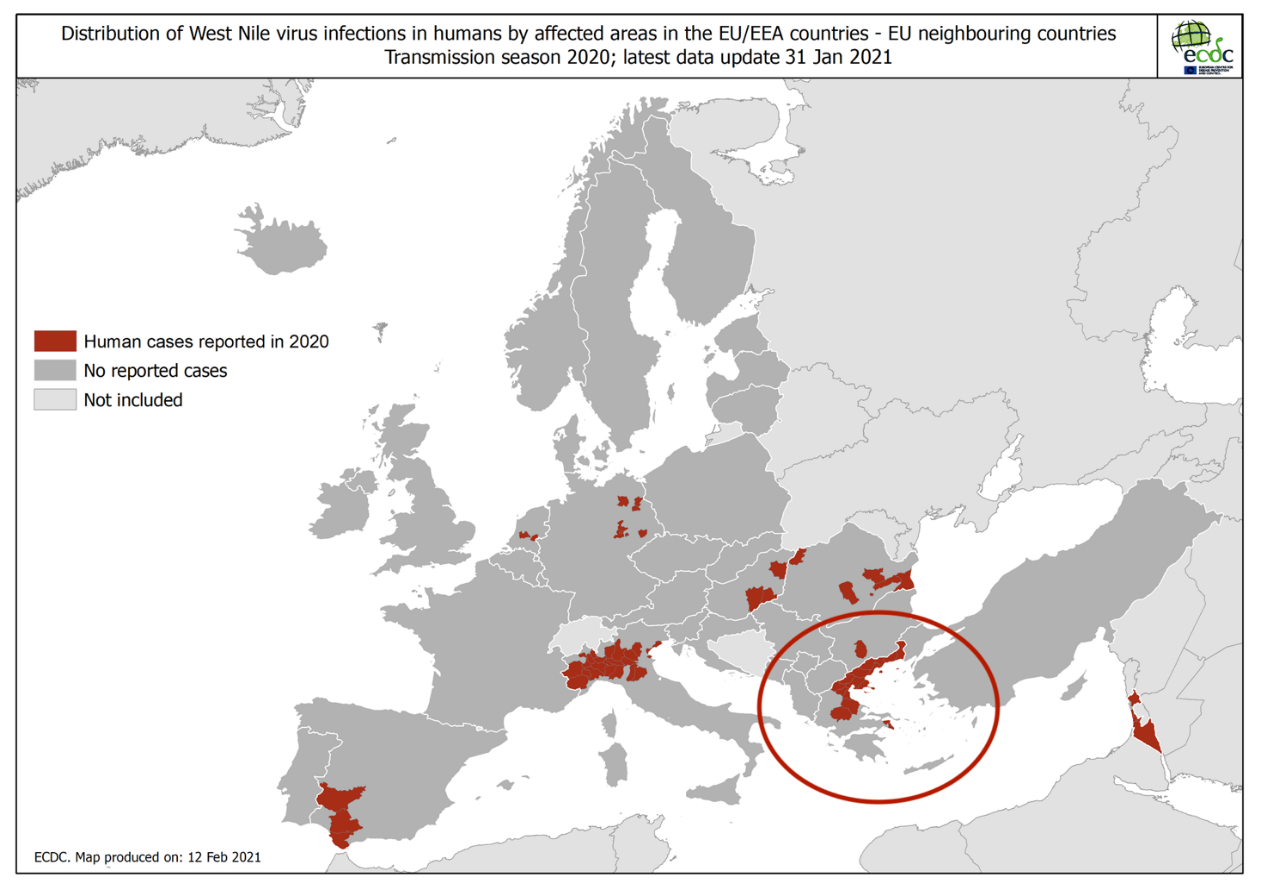Several administrations and institutions are involved in the prevention and control of WNV in Greece at the national level. Main national stakeholders include: (i) the Ministry of Health (MoH), with its intersectoral National Committee for the Prevention and Management of Tropical Diseases, (ii) the Hellenic National Public Health Organization (NPHO), (iii) the National blood safety authorities, and, (iv) the Ministry of Rural Development and Food.
In this context, the MoH and its National Committee for the Prevention and Management of Tropical Diseases is responsible for the health policy development also related to WNV, through legislation, circulars on vector control and consultation on emergency response mosquito control treatments.
The NPHO performs enhanced surveillance for WNV disease in humans through awareness raising of clinicians and doctors concerning the diagnosis of WNV infection, active laboratory-based surveillance throughout the transmission season (daily communication pattern with reference/specialised laboratories), case investigation, immediate update of national and regional and local stakeholders on the diagnosed cases, support of the laboratory diagnosis capacity (funding the National Reference Laboratory and other specialised diagnostic laboratories for free-of-charge diagnosis for the patient), as well as communication and health promotion activities for the public, risk assessment, and mosquito surveillance.
The National blood safety authorities implement blood safety measures for the protection of blood donations against WNV infection. The Hellenic National Blood Transfusion Center-EKEA implements nationwide blood safety measures for blood donors residing or having visited affected municipalities. The Coordinating Centre for Haemovigilance and Surveillance of Transfusion of the NPHO issues guidance on haemovigilance. At the same time, an Intersectional Working Group for the designation of affected areas by vector-borne diseases (under the MoH National Committee for the Prevention and Management of Tropical Diseases) consulted on the characterization and designation of WNV affected areas (where blood safety measures are implemented).
The Ministry of Rural Development and Food is the central competent authority for the implementation of the national WNV surveillance in the context of national animal health authorities (animal health policy, horses and birds’ WNV surveillance). Its Benaki Phytopathological Institute performs mosquito surveillance programmes.
Other organizations or entities that contribute to the functioning of the surveillance system are:
- Doctors, clinicians and laboratory experts, involved in case diagnosis and case management. The NPHO prompts them to conduct laboratory testing of all WNV infection suspected cases.
- Official veterinarians, private vet practitioners, horse owners, hunting or environmental associations involved in reporting every suspect case to the competent veterinary authorities.
- National Reference Laboratory for Arboviruses and other specialised laboratories, involved in the diagnosis of WNV infection. NPHO recommends referral of samples to specific specialised laboratories for testing.
- Medical Entomology Unit of the School of Public Health, University of West Attica: which is involved in the mosquito surveillance funded by the NPHO.
- Hellenic Transplant Organisation, responsible for transplant safety measures.
- Regions (regional public health and animal health authorities) and municipalities, working on integrated mosquito surveillance and control activities, communication, and health promotion activities for the public, and on equids and birds’ surveillance at the regional level.



